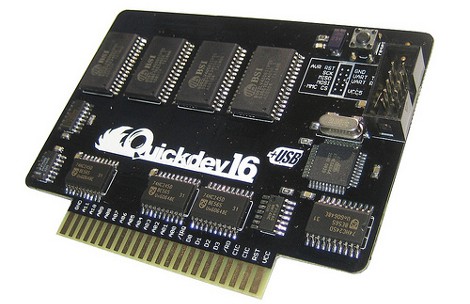
[Tony’s] trying to scare the kids again this Halloween. This year’s creation is a skeleton that springs up from a coffin. His creepy coffin is built from plywood and in the classic style it gets narrower at each end. Inside, there’s a full-sized rubber skeleton affixed to a 2×4. Pneumatic rams are used to lift the lid and spring forth the skeleton from the dead.
He’s planned his performance well. The finished system uses a fog machine and looped audio for ambiance. A motion sensor detects innocent victims approaching, kills the music, opens the coffin lid, and adjusts the lighting. The coffin is right next to the door so when the doorbell is pushed and the skeleton springs upright this should scare the bejesus out of you. See how effective this in the video after the break. Continue reading “Halloween Props: Skeleton Springs From Coffin”















